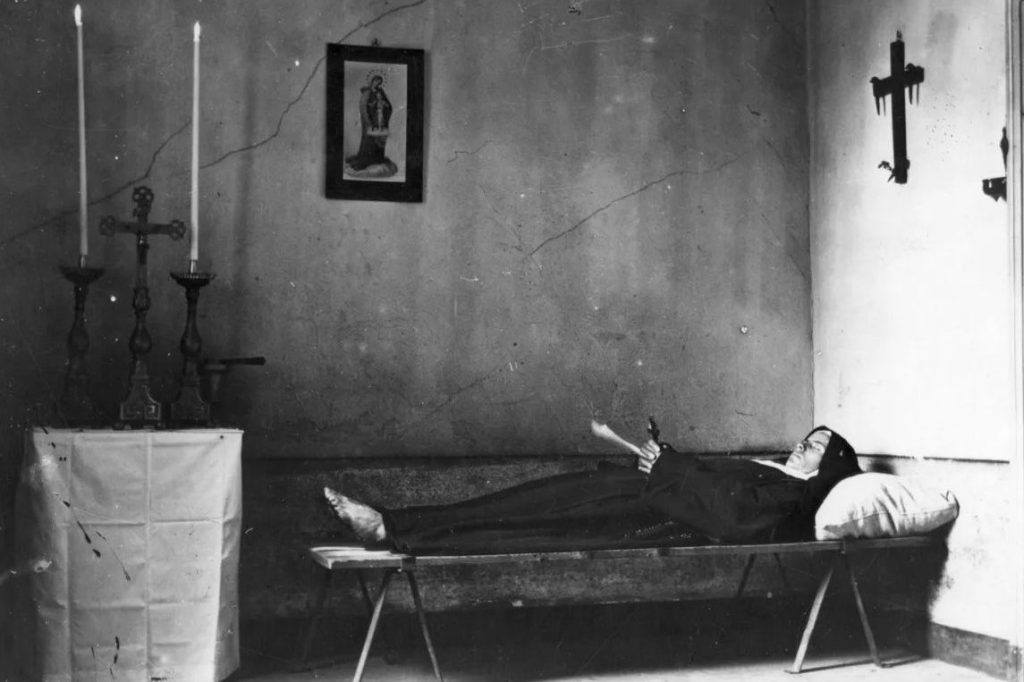Abstinence doesn’t typically come to mind when you think of Valentine’s Day. But this year it coincides with Ash Wednesday and the beginning of Lent, when we traditionally give something up. (Bear in mind that Christianity recognizes a very gruesome torture and death as the ultimate gesture of love. For us, a little bit of suffering seems perfectly in order on a day celebrating love.)
White-knuckled sex positivity isn’t serving women’s spiritual needs
I was still in Catholic school in Virginia the last time the two days collided. We were, like all teenagers, obsessed with love and fixated on our own nascent desires, although this obsession manifested in strange ways. A few boys sported “Virginity Rocks” hoodies (unironically, as far as I was aware) and pasted “Porn is Lame” stickers on their laptops. I was in an extracurricular society for girls that held a ceremony where we had chastity rings blessed by the school chaplain. It sounds culty, but we hoped that as soon as we pledged ourselves to purity, God would reward our sacrifice with boyfriends.
Did we convince anyone that virginity really rocks? The question feels strangely cruel now. Mass shootings perpetrated by young male “involuntary celibates” have increased since the 2018 Parkland school shooting, which on Valentine’s Day saw seventeen people murdered and another seventeen injured. To say that celibacy is “uncool” is a gross understatement.
In addition to its sinister connotations, according to TikTokker Hope Woodard, “celibate is giving ‘I’m gonna become a nun.’ Celibate is giving lame, dude, lame.” Although for her it’s not the concept so much as the word which is “giving lame,” Woodard, twenty-seven, has rechristened — or rather rebranded — celibacy as “boysober.” The rules of boysobriety, she tells nearly 400,000 followers, include: no dating apps, no dates, no exes, no situationships and no “xoxoxo” (“hugs and kisses, extended, et cetera”).
The New York Times recently profiled Woodard’s first boysober event, which was a sort of tenderhearted storytelling session where comediennes talk about the men who have hurt them and the women who have healed them. One of the attendees, Catie, praised the celibacy rebrand as this year’s hottest “mental health craze,” which sounds like something you might be sectioned for. The word “boysober” sounds like every other infantilizing trend of the last year or two — “girl dinner,” “girls that get it,” “girl math,” “clean girl,” etc. One may wonder where the “girlsober” movement has got to given these kinds of trends are geared towards New York women in their twenties who identify as bisexual or queer (although, in all likelihood, they’ll only be dating boys).
Catie said she and her friends go celibate “every so often,” as if celibacy is a thing you dip in and out of. This is a generation with a tendency to keep branding and rebranding routine behavior and cycles through new trends by the week, like painting your nails blue (“blueberry milk nails”) or going outside (“hot girl walks”). A few months or years without sex doesn’t need a special public-facing label, whether “celibacy” or something else. It’s normal.
Still, the impulse to repackage abstinence isn’t anything new. We always called it a “dating fast.” For Evangelical friends, a “season of singleness.” Boysober is only the latest attempt at making not having sex sexy. But why do we feel the need to do so? Why make celibacy chic? Many women have found themselves in a bind, not wanting to touch the unfashionable moral implications that come with talking about abstinence, yet feeling like white-knuckled sex positivity isn’t serving their spiritual needs, or mental health needs, or whatever you may call it. When there’s an expectation to go on lots of dates or have lots of sex, it doesn’t feel at all like liberation anymore.
One person who has given up on romantic relationships told me she did so because she was “exhausted and mortified by the thought of going on more dates.” After going through a big breakup and being told to “get back out there,” another celibate woman told me “the thought of sitting, every Sunday night, scrolling through strangers on Hinge filled me with dread.” Another said, “I’m so traumatized by past relationship experiences that I’m not sure I can emotionally handle another bad experience dating, so I’m choosing to fast because I actually feel like I’m out of options.” Clearly the rules of the so-called dating game have made a lot of women unhappy, to the extent that they would rather not play at all.
There’s a good reason why fasting is a part of all major religious practices. Giving up something we desire, or even need, isn’t about self-flagellation but rather the freedom that comes with detachment — in Woodard’s case, as she tells her viewers, that means freedom from thoughts dominated by romantic obsession, or from feeling that she is obligated to say yes to men’s advances. So, are we about to see a Lysistrata-style sex strike among women in their twenties? Probably not, though maybe it wouldn’t be such a bad thing.
This article was originally published on The Spectator’s UK website.


























Leave a Reply